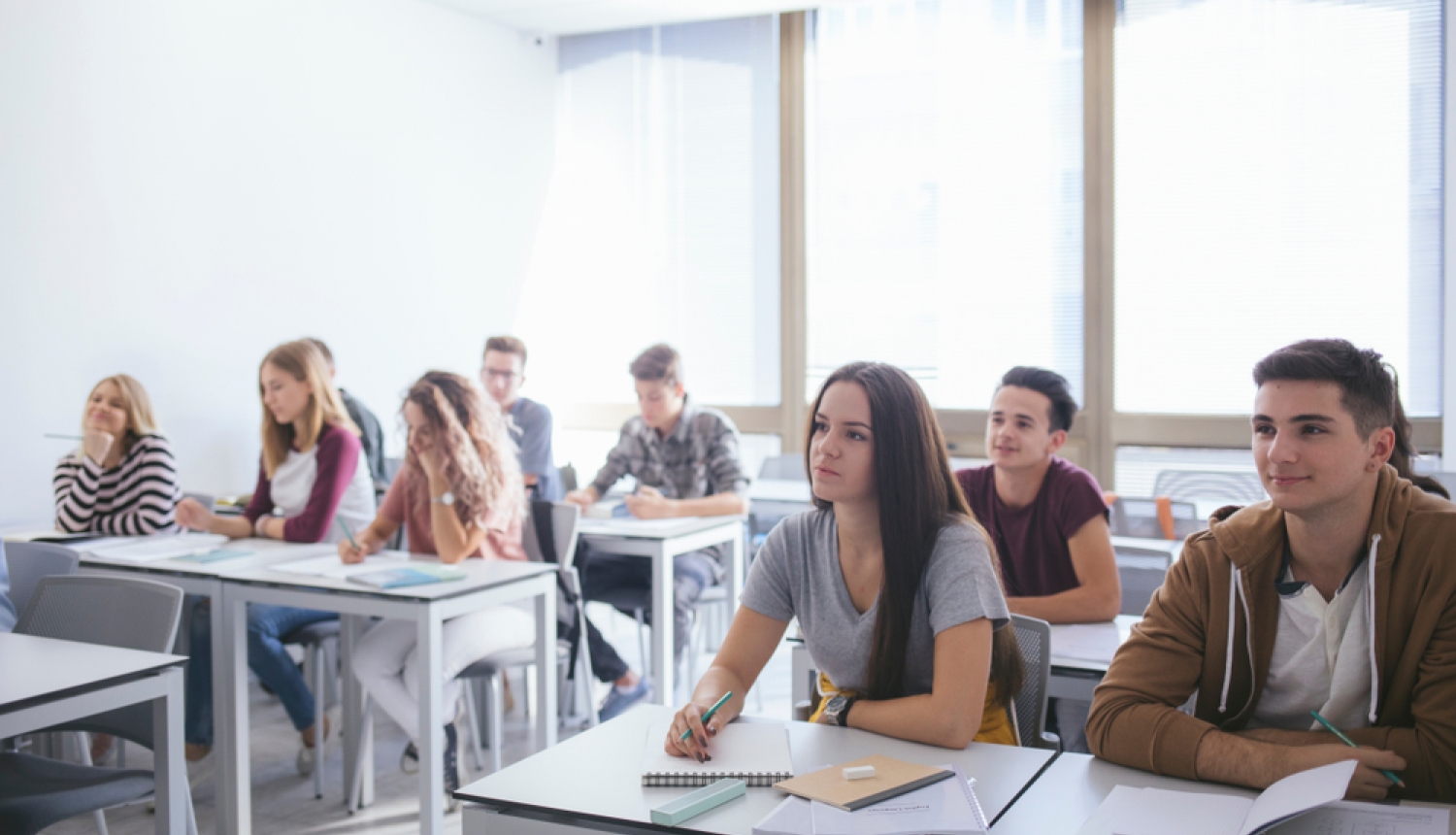As of 2026, the school pupils will have to master an official language of the European Union (EU), the European Economic Area (EEA) or a foreign language governed by intergovernmental agreements in the field of education as the second foreign language, while the grades in Russian obtained in previous years will be recorded this year on the 9th Grade Report Card, upon parental application. This is provided for in the amendments to the National Standard for Basic Education adopted by the Government on 23 April.
In view of the full-scale war launched by the Russian Federation in Ukraine, educational institutions are receiving applications from parents requesting to withdraw their children from the Russian language courses. The amendments to the National Standard for Basic Education have therefore been adopted, stipulating that if parents request to withdraw their children from further studying of Russian as the second foreign language, then in the 2023/2024 school year, the 9th Grade Report Card will include the Russian language assessment obtained in the previous school years.
According to the Minister for Education and Science Anda Čakša, "By providing the opportunity to choose the second foreign language at school from one of the languages of the European Union, we demonstrate our belonging to the European cultural space and the values of the democratic world. After the bloodiest war this century launched by Russia, the genocide against the Ukrainian people, Russian as a compulsory option for a second foreign language is unacceptable to a large part of the Latvian society. Therefore, it is self-evident that we are building a path for the development of national education based on the European cultural space and values." For example, the state budget provides a grant of EUR 300 for each student of this study programme. Until now, the National Standard for Basic Education provided for the teaching of the second foreign language, but did not specify which language should be taught. As a result, Russian was the most commonly taught second foreign language in the educational institutions of Latvia, with German or English being taught less frequently. Amendments to the National Standard for Basic Education adopted by the Government on 23 April provide that pupils who will start grade 4 on 1 September 2025 will not be required to learn the second foreign language, while from 1 September 2026 (5th grade) only an official language of the EU or EEA or a foreign language regulated by intergovernmental agreements will be taught as the second foreign language. However, if by 1 September 2025 pupils have started learning the second foreign language other than one of the official languages of the EU or EEA or a foreign language governed by an intergovernmental agreement, the school will have to ensure that the second foreign language, including Russian, is continued until the end of the basic education phase.
In addition, we would like to recall that on 9 April the Saeima approved in the second reading the amendments to the Law on Education, providing that pupils in grades 4-8 who have withdrawn from learning Russian in the current school year will be able to pass to the next grade without a grade in the subject of the second foreign language, while if parents submit an application on the withdrawal from Russian by 21 June this year, the pupil will be able to learn another second foreign language starting from the new school year. This will ensure that all pupils will be able to complete grade 9 without learning or continuing to learn Russian.
The adopted amendments to the National Standard for Basic Education and the draft amendments to the Law on Education do not restrict the right of pupils to preserve and develop their linguistic, ethnic and cultural identity, as under the current framework pupils will be able to study minority languages and cultural and historical interest-related education programmes.
We would like to recall that the Saeima adopted, in the second reading, the amendments to the Law on Education, which provide for the right to withdraw from the learning of Russian as the second foreign language in basic education, and it is planned to approve the amendments in the final, third reading in the near future.
The amendments to the Cabinet of Ministers' Regulation "Amendments to the Cabinet of Ministers’ Regulation No 747 “Regulations on the National Standard for Basic Education and Model Programmes for Basic Education of 27 November 2018" are available on the website of the Cabinet of Ministers.



